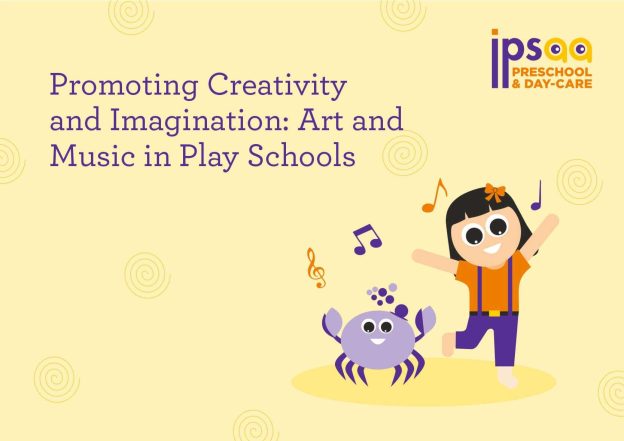Physical activity is essential for the overall development of young children, and play schools have a significant role to play in promoting healthy habits and physical activity. Play schools not only provide a safe and supportive environment for children but also expose them to a variety of physical activities that help build healthy habits from an early age. In this blog, we will explore how play schools help in promoting healthy habits and physical activity in children, and the benefits of this for their physical and mental development.
How playschools help in promoting healthy habits and physical activity
Structured physical activities:
Play schools usually have a structured schedule that includes physical activities like running, jumping, and playing games. These activities help in improving the physical fitness of children and also develop their motor skills. The teachers and staff at play schools are trained to design physical activities that are age-appropriate and safe for children.
Outdoor play:
Outdoor play is an essential part of a child’s physical development. Play schools usually have a playground where children can play and engage in physical activities. Outdoor play helps in developing gross motor skills, improves hand-eye coordination, and enhances balance and agility.
Healthy eating habits:
Play schools usually provide snacks or meals for children. These snacks or meals are designed to provide the necessary nutrients that are essential for a child’s growth and development. Teachers and staff at play schools also educate children about healthy eating habits and the importance of eating a balanced diet.
Hygiene practices:
Play schools are also great places to learn about hygiene practices. Children are taught about the importance of washing hands, brushing their teeth, and keeping themselves clean. These practices help in preventing the spread of germs and diseases and promote good health.
Sleep and rest:
Adequate sleep and rest are essential for the physical and mental well-being of children. Play schools usually have a designated nap time or rest time where children can take a break from physical activities and relax. This helps in recharging their energy levels and prepares them for the next activity.
Teamwork and social skills:
Physical activities at play schools also promote teamwork and social skills in children. Children learn to work together and play together, which helps in developing their social skills and improves their ability to communicate and cooperate with others.
Exposure to different activities:
Play schools expose children to a wide range of physical activities, such as dance, yoga, and sports. This exposure helps children to discover what they enjoy and excel in, which can lead to a lifelong love of physical activity.
Reduced screen time:
Play schools limit the amount of screen time children have during the day, which helps to reduce sedentary behaviour and promote physical activity. Instead of spending time in front of screens, children are encouraged to engage in physical activities, play with toys and interact with their peers.
Safety measures:
Play schools also ensure the safety of children during physical activities. Teachers and staff are trained to identify and address potential hazards and ensure that children are playing in a safe and secure environment.
Healthy competition:
Play schools also introduce children to healthy competition through games and sports. This helps children learn the importance of good sportsmanship, fair play, and teamwork.
Role models:
Teachers and staff at play schools serve as positive role models for children when it comes to physical activity and healthy habits. They encourage children to adopt healthy habits and lead by example, by staying active and engaging in healthy behaviours themselves.
Family involvement:
Play schools often encourage family involvement in promoting physical activity and healthy habits. They may organise family events that involve physical activity or provide parents with resources and tips for promoting healthy behaviours at home.
Mental health benefits:
Physical activity is not only essential for physical health, but it also has mental health benefits. Play schools promote physical activity that helps reduce stress, improve mood, and promote overall emotional well-being of children.
Self-esteem:
When children engage in physical activity and sports, they develop a sense of accomplishment and improve their self-esteem. This helps children build confidence, which can have a positive impact on their overall development.
Introduction to healthy lifestyle choices:
Play schools introduce children to healthy lifestyle choices, which can have a positive impact on their overall health. This includes educating children about the importance of eating healthy, getting enough sleep, and engaging in physical activity.
Prevention of childhood obesity:
Play schools play an essential role in preventing childhood obesity. Through physical activity and healthy eating habits, playschools help children maintain a healthy weight, which can reduce the risk of developing obesity-related health conditions later in life.
Conclusion
Play schools play a crucial role in promoting physical activity and healthy habits in young children. By providing a safe, supportive environment and exposing children to a variety of physical activities, playschools help children develop healthy habits that can last a lifetime.


